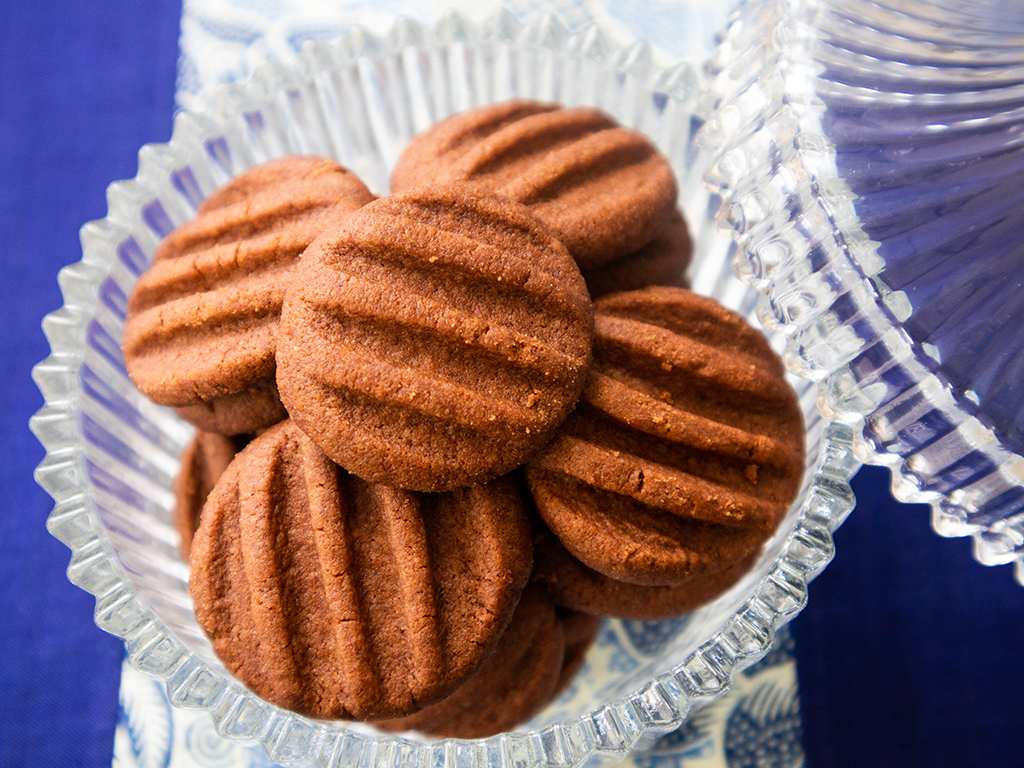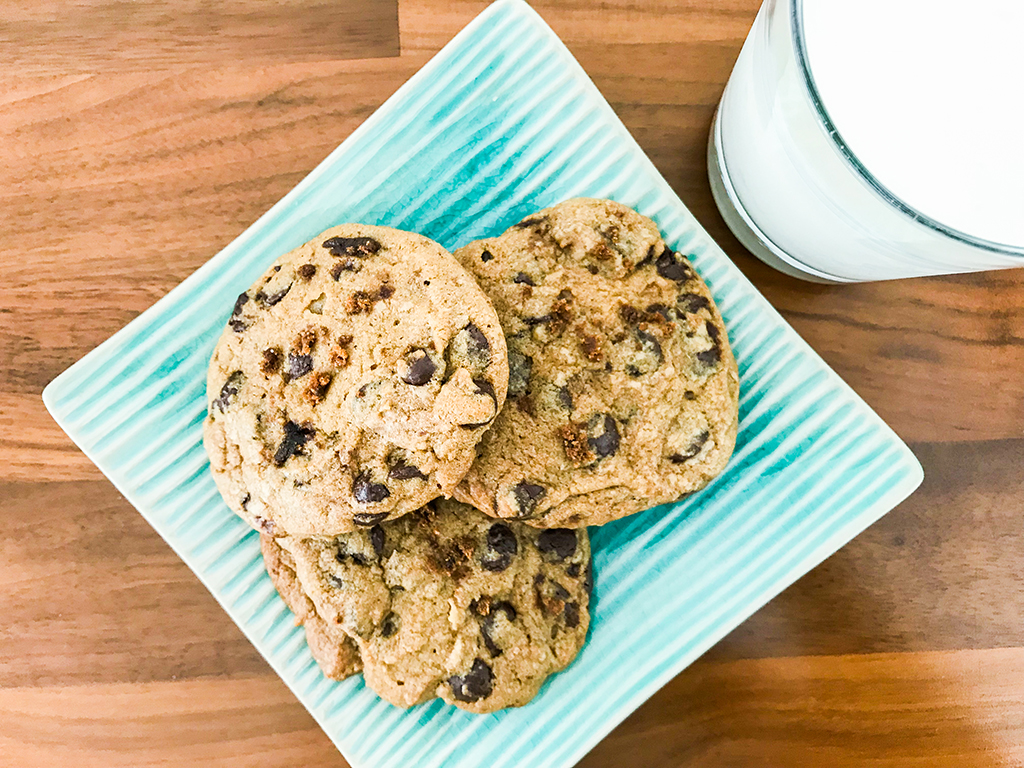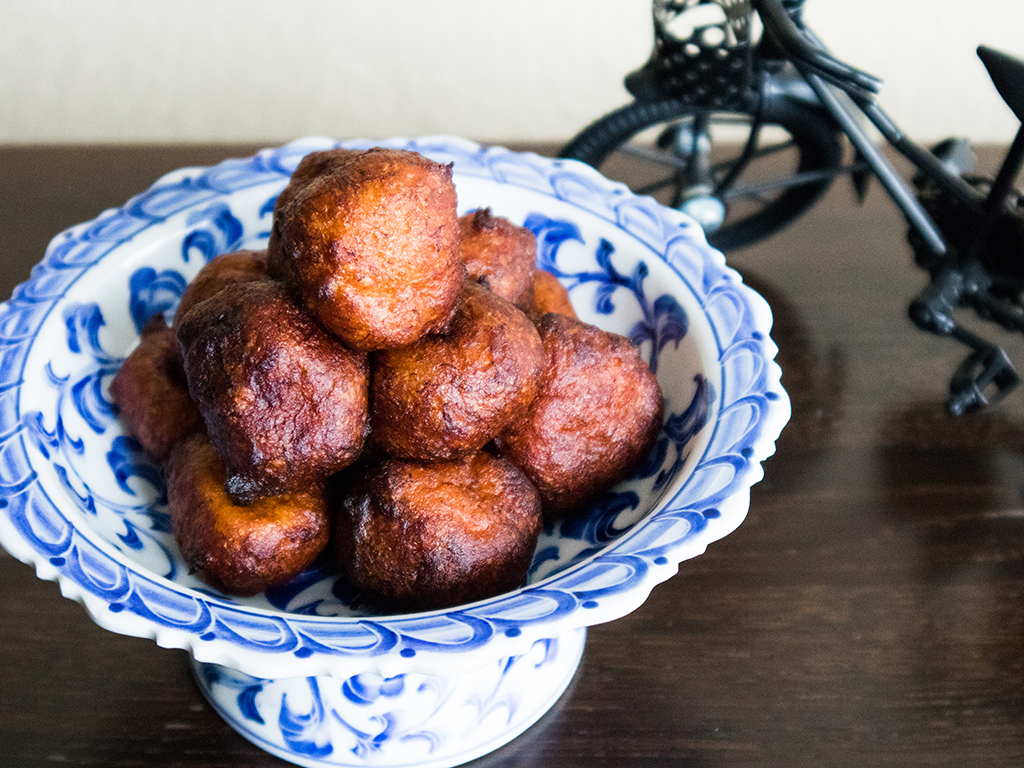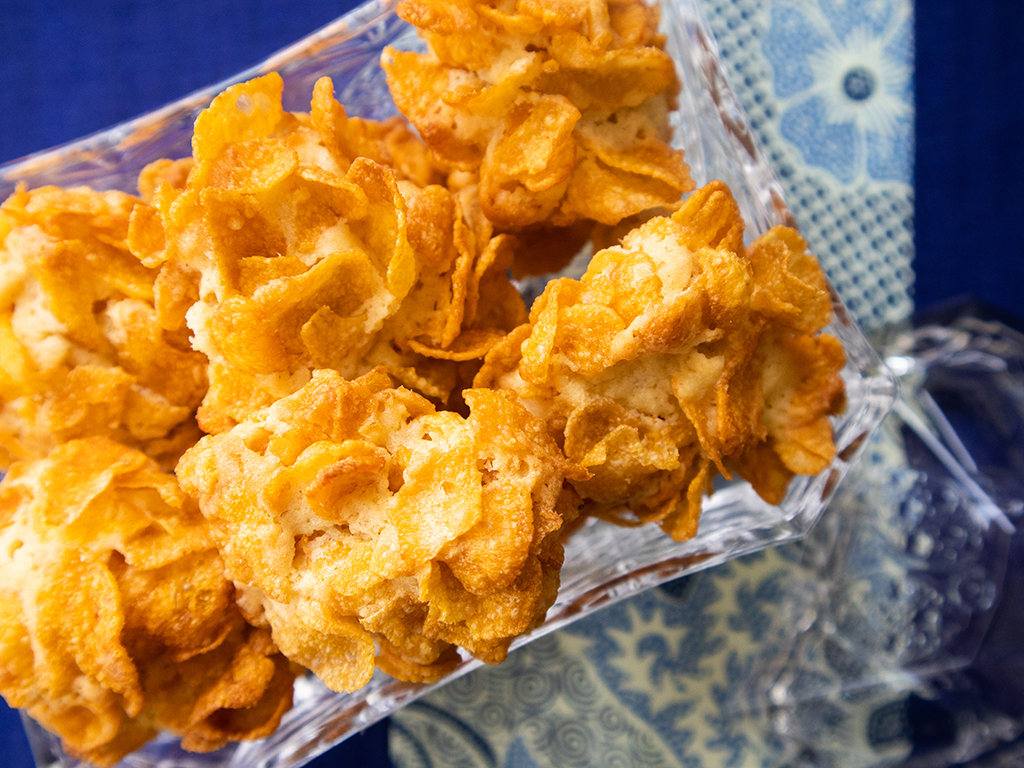
Hari Raya, Christmas and Chinese New Year has got to be the peak of cookie seasons here in Malaysia, with households, artisanal bakers, bakeries and factories churning out millions and millions of cookies combined.
Even supermarkets stock up on this global item that has somehow become an essential ingredient in one of Malaysia’s most popular cookies – cornflake cookies. There’s no denying it, these cookies are everywhere.
Whether homemade or store bought, every single house you visit will probably have a large jar or two lying in wait. And why not? They’re easy to make, don’t require many ingredients, and involves some hands-on making that the kids will enjoy. But what if you want something just a little bit different?
Something to charm and surprise your guests when they bite into what they think is yet another cornflake cookie? Well, you’re going to want to try our rose water cornflake cookies.
There are about a million and one types of cornflake cookies out there in the world, from the easy, no bake varieties to those that are a little more complex.
Some recipes leave the flakes whole, while others crush them into smaller pieces, and yet others pound the cornflakes into tiny little pieces or have them as fine as flour. And we’re just taking about the cornflakes here.
The variations in recipes for cornflake cookies and biscuits, are, to be honest, astounding, from those which use honey, and others chocolate or peanut butter, flour or no flour, nuts or no nuts, and well, just about any baking ingredient you can think of.
There are so many variations with what you can do with this one popular breakfast ingredient that you’d probably be able to put together an entire recipe book dedicated to just this one cookie without breaking a sweat.
But where did all begin?
The history of cornflakes is easy – it was invented in 1894 purely by accident when superintendent John Harvey Kellogg and his younger brother, Will Keith, left some cooked wheat behind and discovered it had gone stale.
Instead of throwing it out, they forced it through rollers, hoping to roll out sheets of dough. Instead, what they ended up with were flakes, which they toasted and served to patients at the sanatorium where they worked. It became part of a strict vegetarian diet that they hoped would reduce ‘passion’ among their patients.
The toasted wheat was so popular that the Kellogg Company was established to sell it to the wider market. And it was not long after that rival companies started producing their own brand of cornflakes.
The history of cornflake cookies, however, is a mystery at best, but it wouldn’t be all that surprising to find out if the first recipe was invented to sell more cornflakes. That makes sense, right?
As to how cornflake cookies became one of the most famous cookies during our festive seasons, however, we admit, we have no idea. But if you do, please let us know!
The rose water effect
Our recipe for rose water cornflake cookies produces a crispy, crunchy cookie with a light biscuity centre, filled with large flakes throughout. It’s a fairly popular cornflake cookie style in Malaysia, but we’ve added a special ingredient to make it stand out – rose water.
Rose water is made by distilling water steeped in rose petals. With ancient origins in Persia, it’s a popular flavouring in many Persian and Middle Eastern dishes. It’s also an ingredient in rose syrup – one of Malaysia’s favourite cordials! Hello sirap limau ais!
Its distinct floral aroma and flavour is both familiar and exotic, and just a little bit adds something truly special to the ordinary cornflake cookie. In fact, we dare say that the addition of this simple ingredient makes cornflake cookies taste even more festive somehow – like the very first morning of Eid!
If you’re not one for rose flavours, this recipe also works perfectly fine without. Just omit it from the recipe. But we reckon rose water cornflake cookies are something special, and you should definitely give it a try. You might just find it pleasantly surprising.
Ingredients
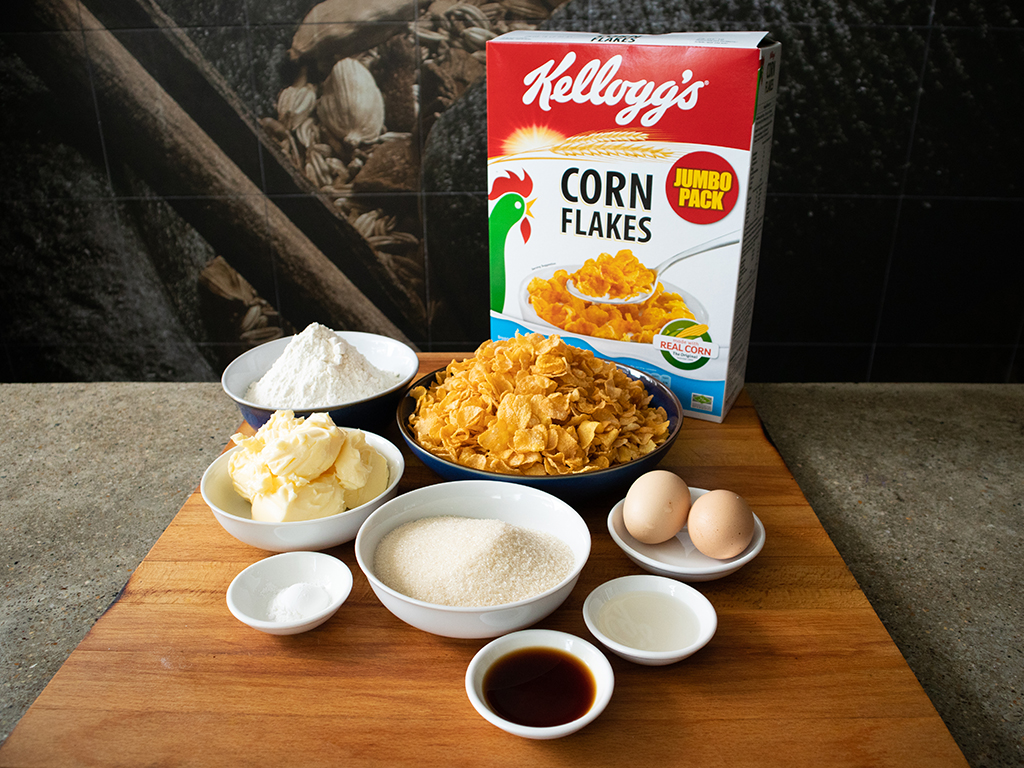
- 285g all-purpose flour
- 4g (1 tsp) baking powder
- 170g castor sugar
- 255g unsalted butter, softened
- 2 eggs
- 13g (1 tbsp) rose water
- 14g (1 tbsp) vanilla essence
- 500g (1 box) Kellogg’s cornflakes
Method
- Preheat oven to 175°C.
- Cut softened butter into smaller cubes and place it in a mixing bowl, along with the sugar.
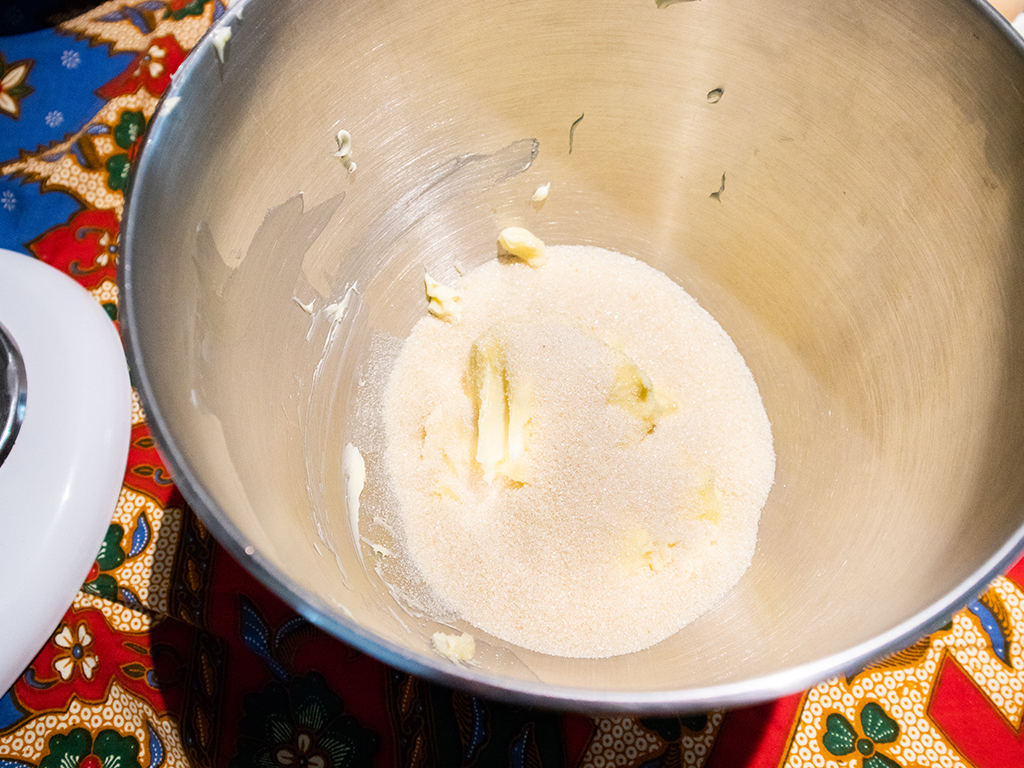
- Cream butter and sugar mixture, either with a handheld or countertop mixer, beginning with low speed until the mixture is more or less combined.
- Scrape down the sides of the mixing bowl then increase the speed to maximum and cream for about three to four minutes until the mixture is pale and soft, but not fluffy.
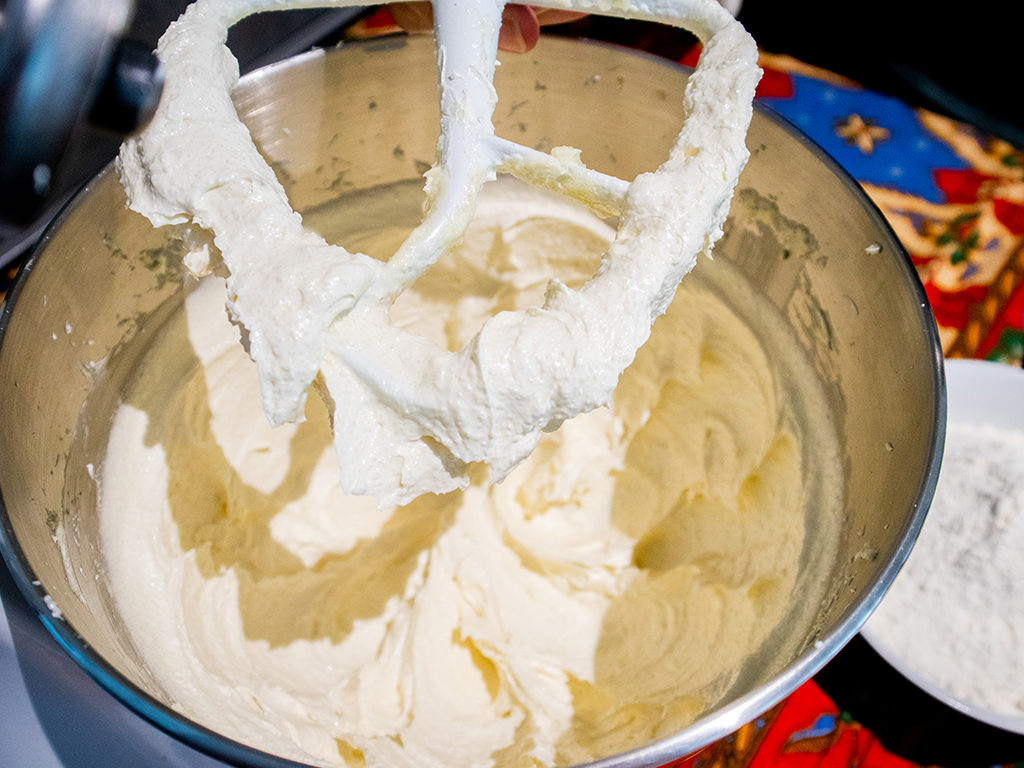
- Add eggs one at a time, mixing each egg on low speed until just combined before adding the next egg. Once the final egg is in, beat mixture on low speed for about two minutes.

- Add vanilla essence into the mixture
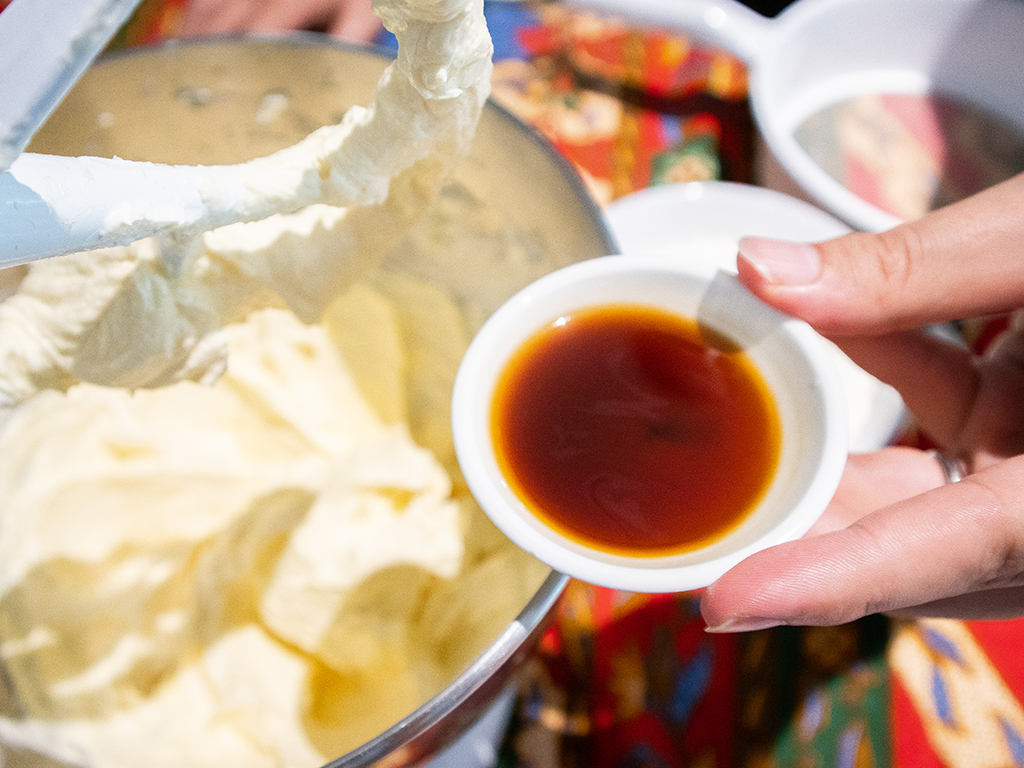
- Next, add rose water and continue mixing on low speed until thoroughly combined.
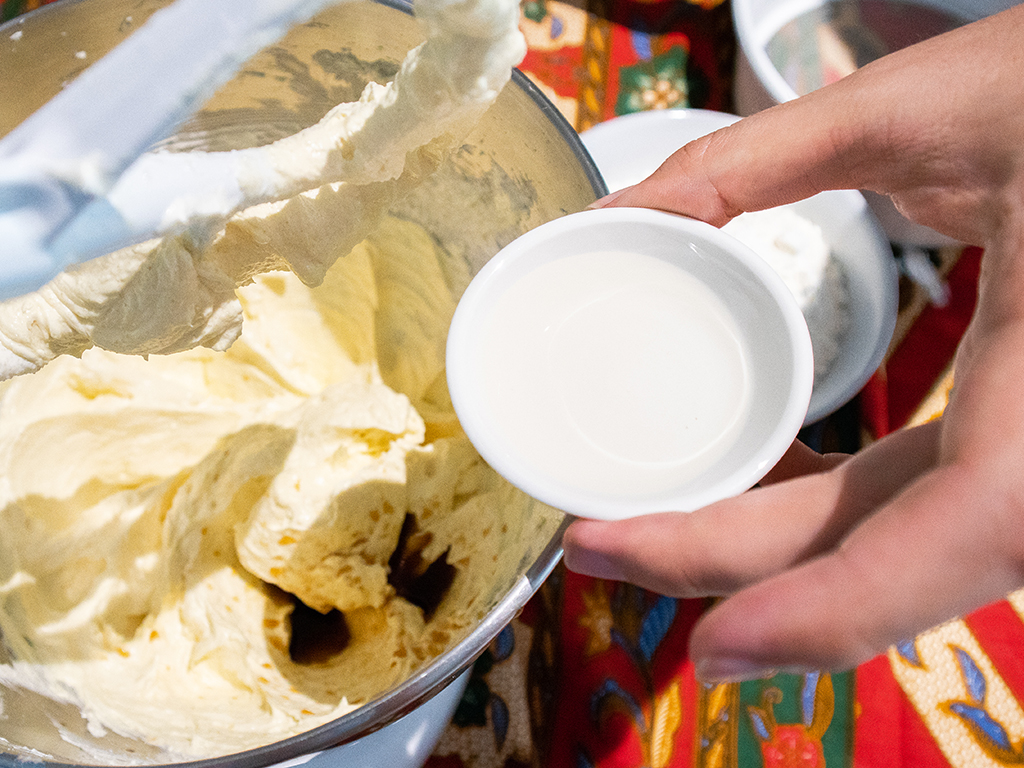
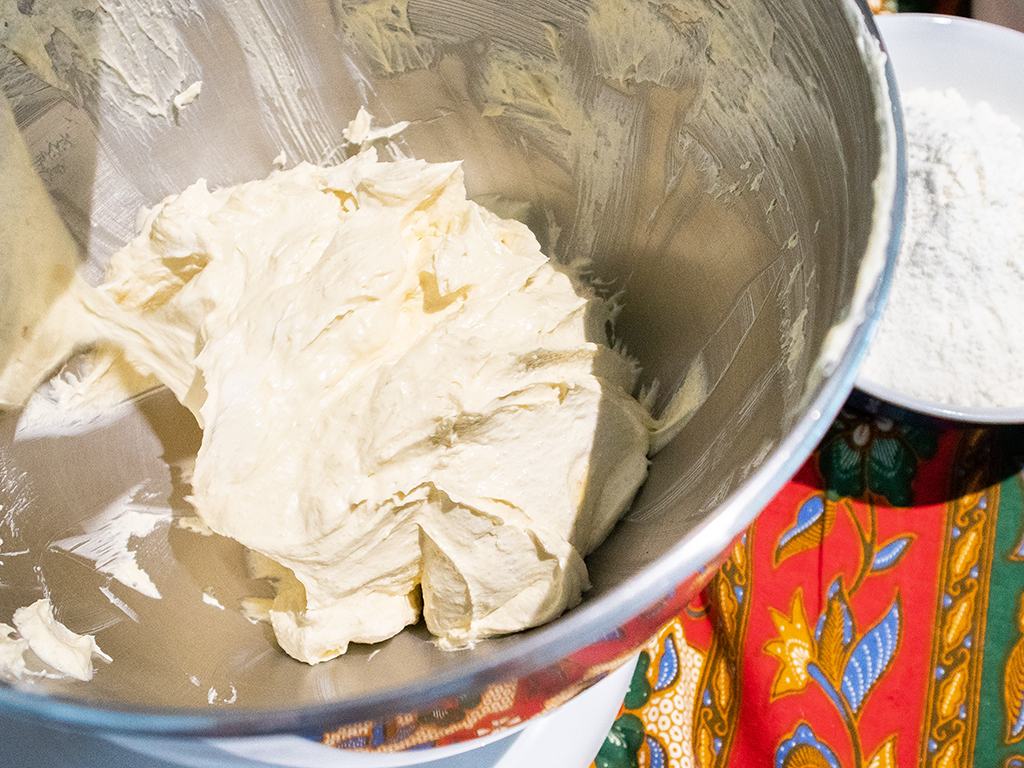
- Combine all-purpose flour and baking powder in a fine mesh strainer.
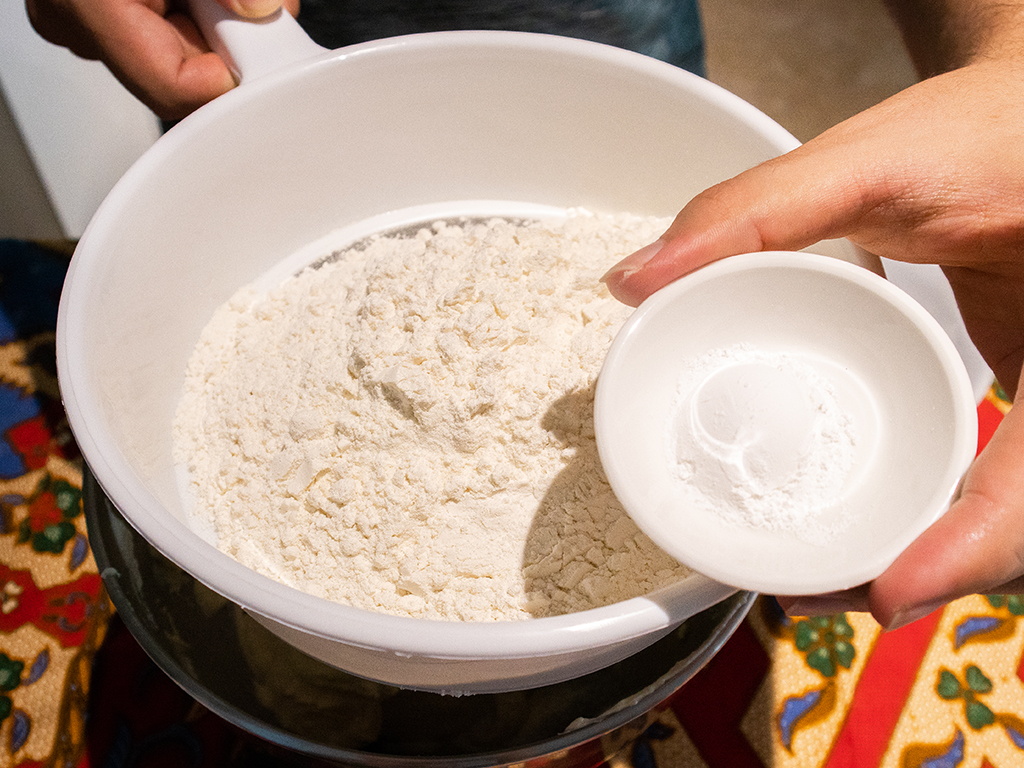
- Sift directly into the mixing bowl with the creamed butter. Feel free to sift the flour in batches if your sift is small.
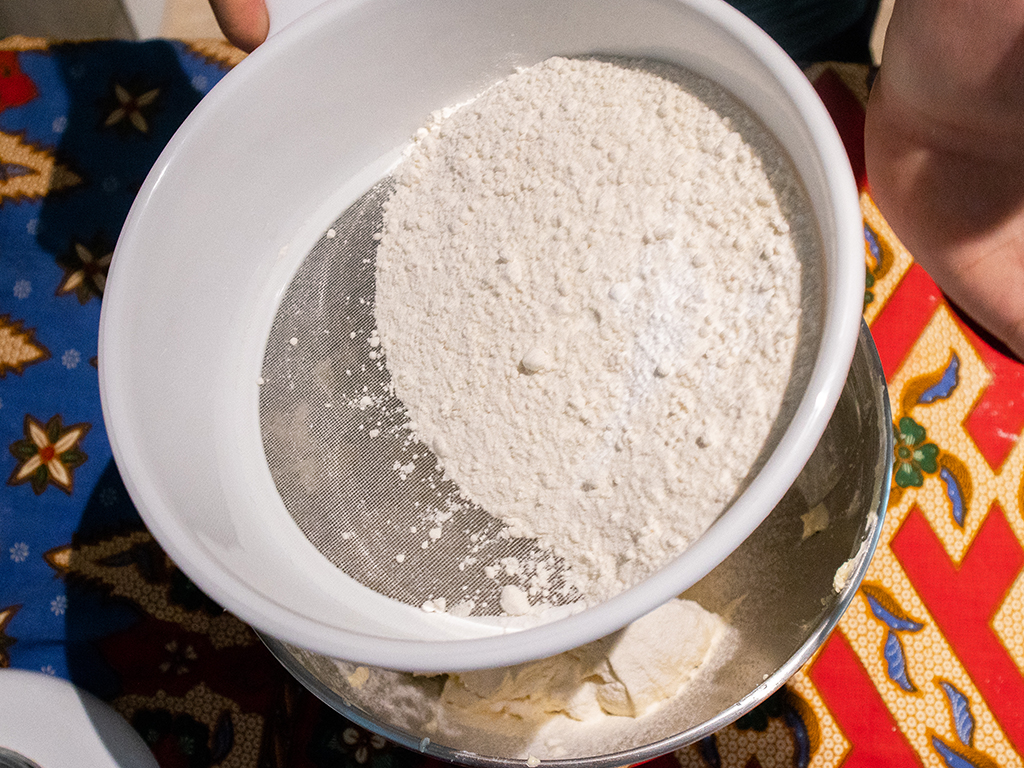
- Once all flour has been sifted, use a spatula to fold the ingredients together until thoroughly combined.
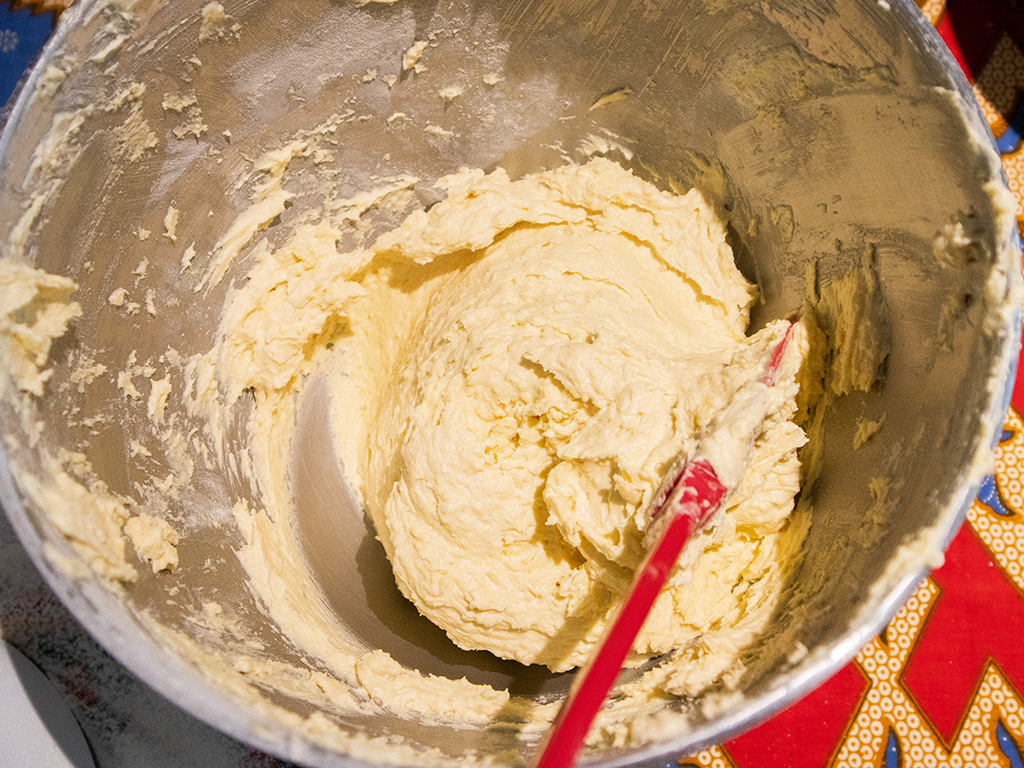
Shaping & baking rose water cornflake cookies
- Prepare a large tray and fill it with cornflakes.
- Using two regular teaspoons, scoop out a flat spoonful of dough and shape it until it is more or less round.
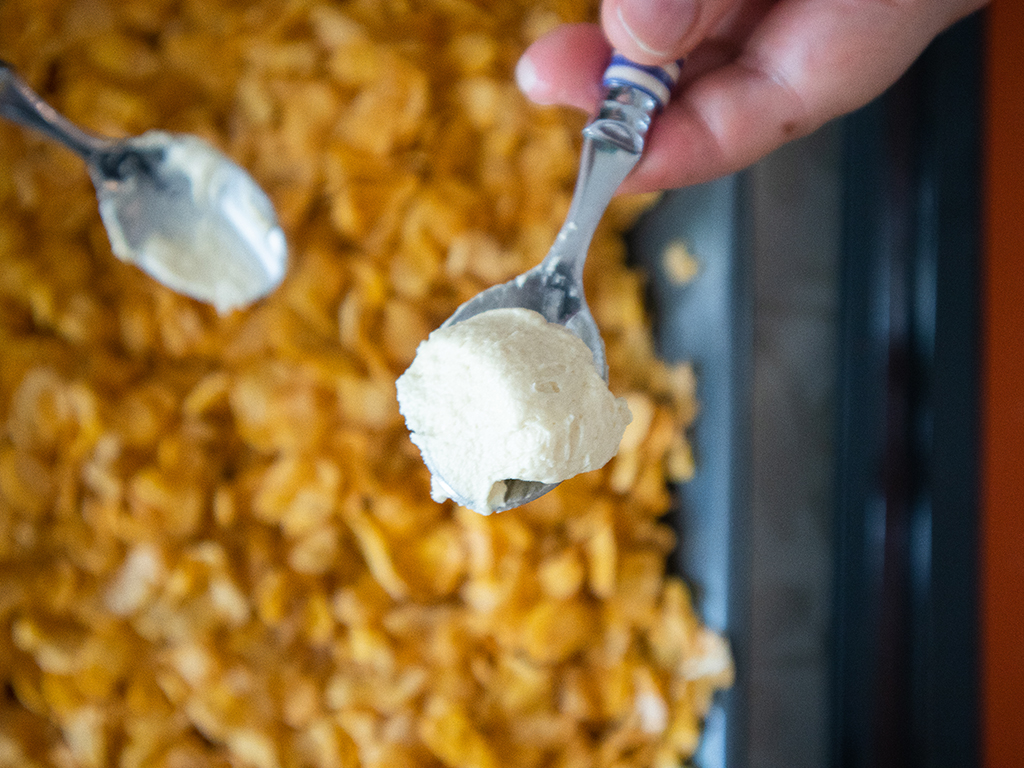
- Drop the shaped dough onto the cornflakes, keeping them roughly 5cm apart. Continue dropping balls of dough until the tray is full.
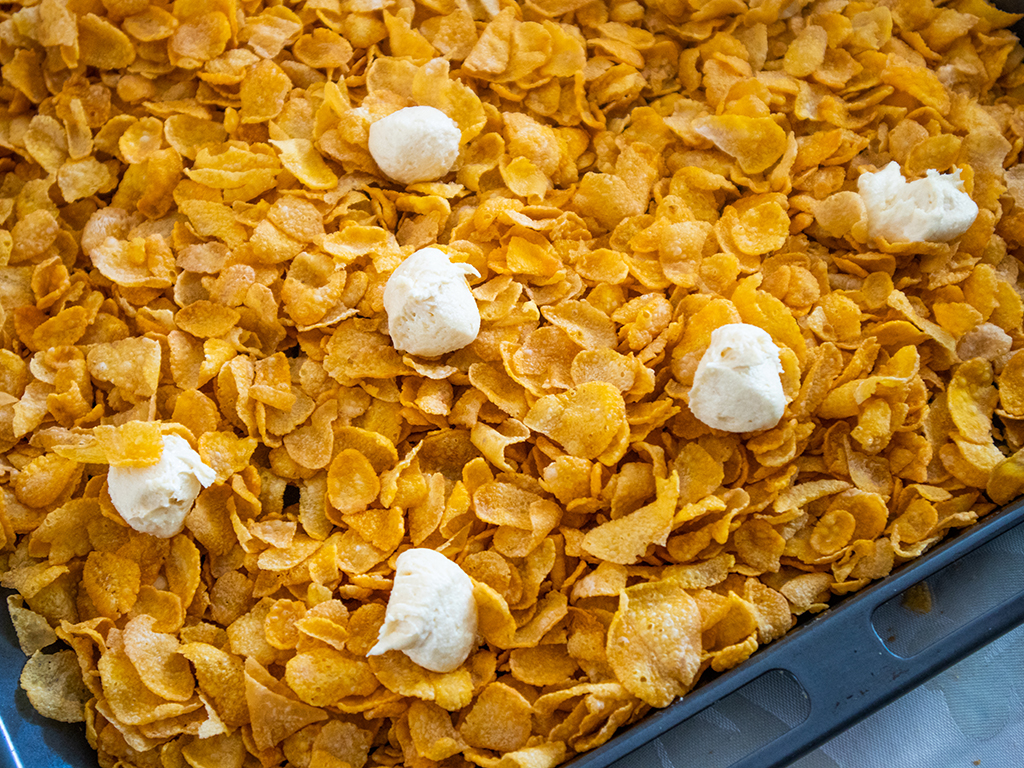
- With clean and dry hands, generously coat each ball of dough with lots of cornflakes.
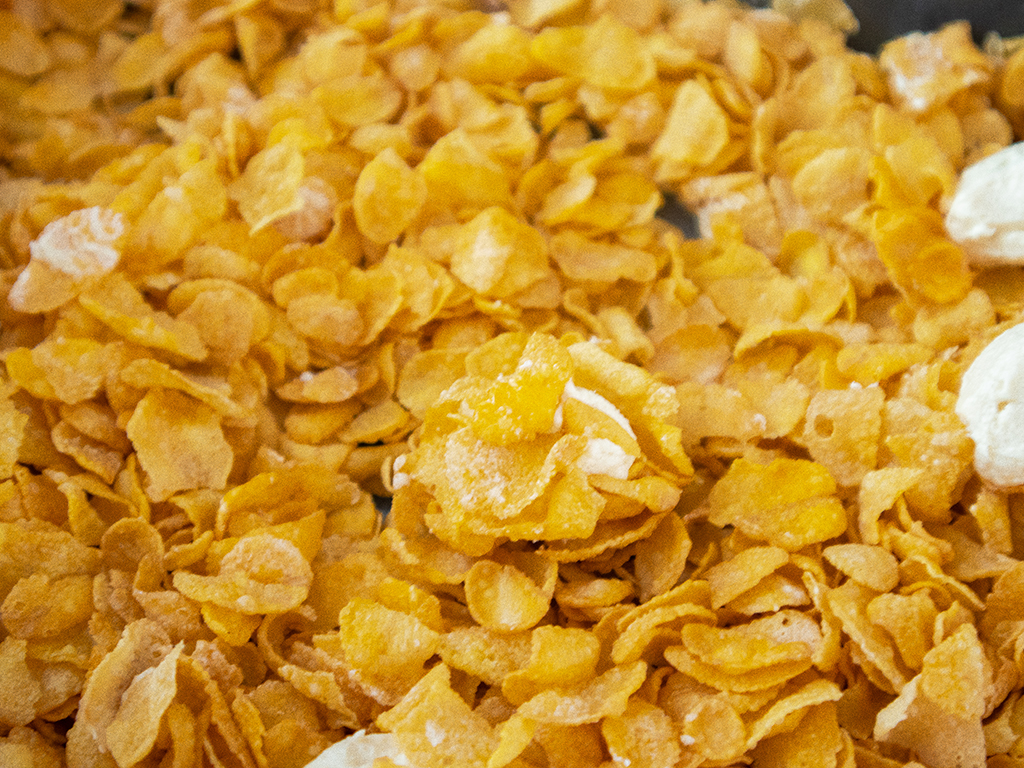
- Here comes the fun part. Grasp a cornflake coated ball in the palm of your hand and gently compress it with your palm and fingers, pushing the cornflakes into the dough. The general idea is to use the dough as glue to ‘stick’ the cornflakes together, so you end up with a fairly dense ball of cornflakes. Being gentle helps keep most of the flakes intact. Note that the dough is soft and your cookie is fragile, so don’t overdo it! If the cookie falls apart, stick it back together and apply a little more pressure.
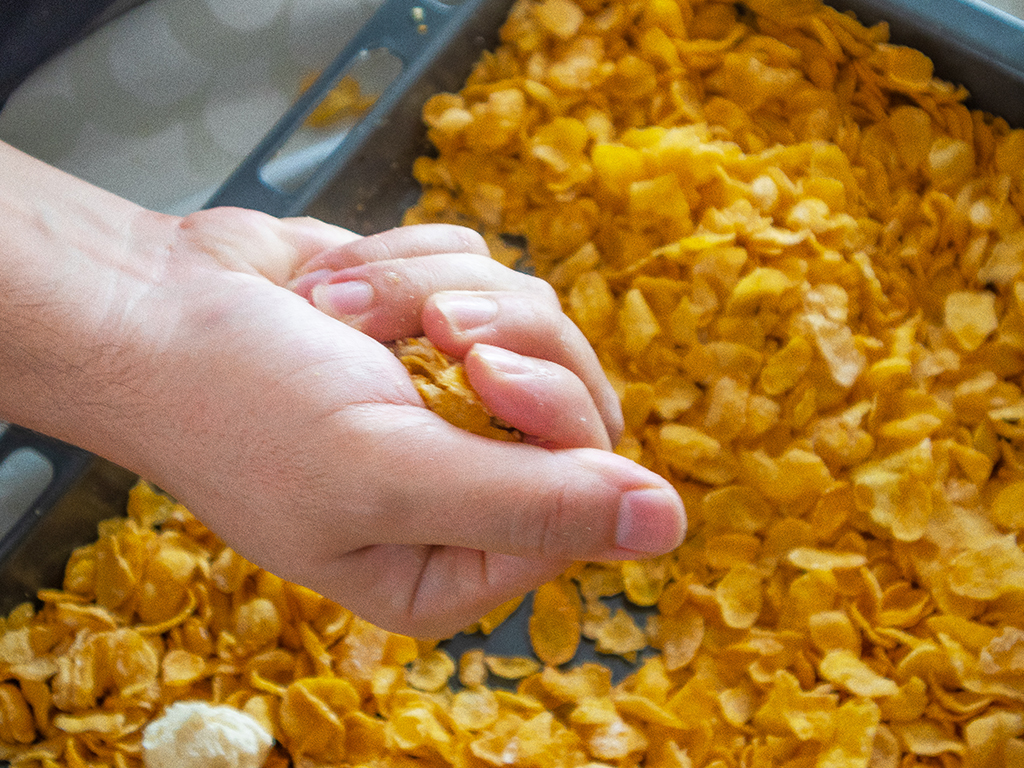
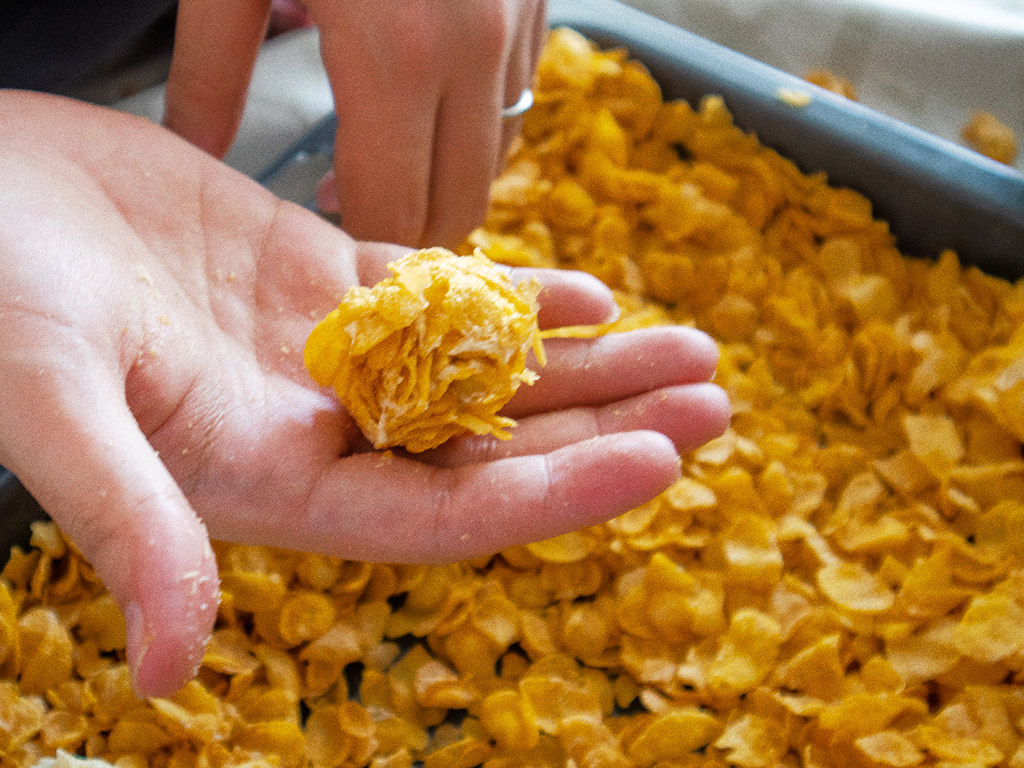
- Arrange compressed cookies on a baking sheet lined with silpat or baking paper roughly 3cm apart. These cookies will expand.
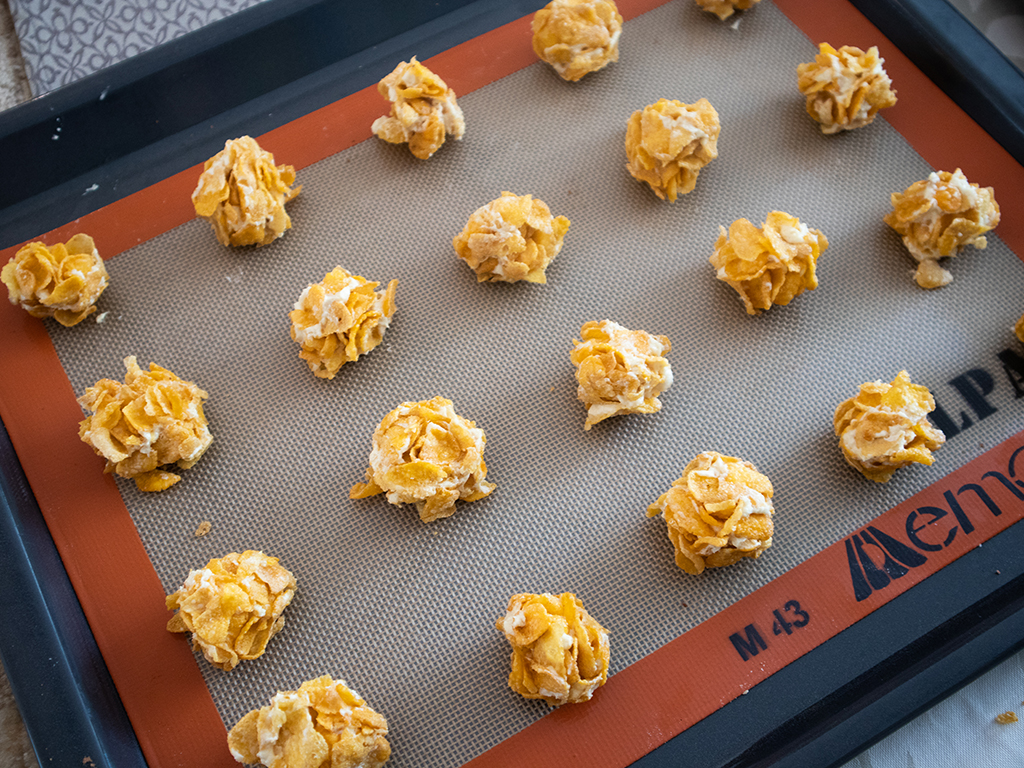
- Bake at 175°C for about 17 to 20 minutes. Your cornflakes should be crispy and the doughy part dry and flaky to the bite.
- Let cookies rest on the baking sheet for a minute before transferring to wire racks to cool.
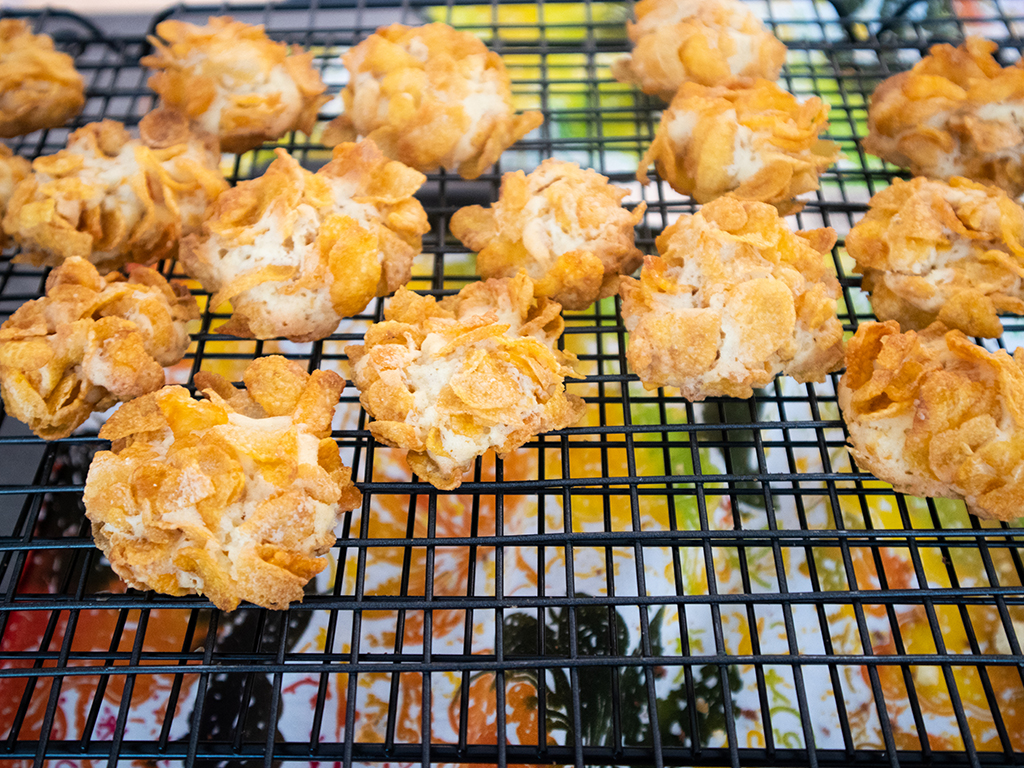
- Once cooled, store cookies in airtight containers immediately, as they can easily become soft from exposure to our humid environment.
Extra tips
- Rose water and rose essence are similar but not quite the same thing. Rose essence is significantly more intense. If you can’t get your hands on rose water, replace with 1/3 tablespoon of rose essence instead. Just make sure it’s of the transparent variety and not coloured red or you’ll end up with pinkish rose water cornflake cookies instead.
- Not keen on that rose flavour? Just leave it out of the recipe.
- Get your kids to help coat the dough in cornflakes. It’s a great excuse to let them finally play with their food.
- The makciks say you have to “lambung, kepal, kejap”, which pretty much means to toss, grasp and compress. You can definitely try your hands at tossing these cookies, although we recommend a low toss and continuous gentle compression until the cookies don’t feel like they can get any smaller.
- Don’t waste leftover cornflakes. Store them in an airtight container and have them regular style with milk for breakfast tomorrow.
If you’re one for familiar things with a twist then this recipe for rose water cornflake cookies is something you absolutely need to try. Let us know how you like them by sharing your pictures on Instagram or Facebook with us. And don’t forget to use the #butterkicap hashtag!

